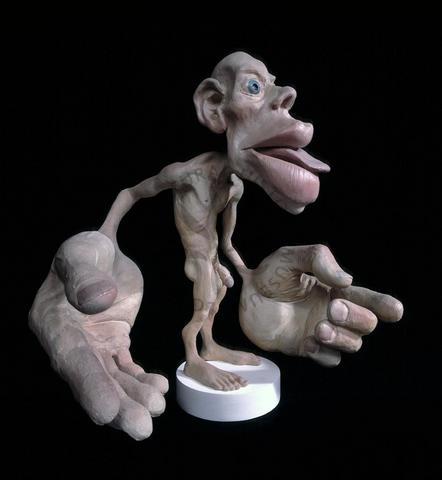Our educational system has become increasingly abstract over the last hundred years. Instead of instruction in sensory development and hands-on skills, we focus almost exclusively on the intellectual and the abstract. Much of this is the result of the influence of Jean Piaget and his stage theory of cognitive development from the 1920’s. He viewed abstract intellectual thought as a higher-order process of the mind, and his influence resulted in schools moving away from sensory intelligence and focusing solely on abstract intellectualism. But was he right, and was this a good move? I don’t think so. It’s led to us becoming a soceity of thinkers and debaters, but not doers. Which is why we’re developing the idea of bushcraft education which views sensory intelligence, or know-how, as equally important as debate and explanation.

This is a clay image of the sensory homunculus from the British Museum Of Natural History. The exaggerated size of the hands, lips, etc., exist because it’s a model representing how much of the brain is used to process information from those parts of the body. From the image we can determine that a much larger part of the brain is devoted to the hands than, say, the knee cap. But our education system focuses almost exclusively on the abstract capabilities of the brain, while ignoring the hands except for writing, using scissors, and other classroom-appropriate activities.
Developing a model that includes both rigorous intellectual work and hands-on learning underlies all of our long-term programs at Jack Mountain. The forests and waterways of Maine are our educational laboratory, and while we haven’t written much about it, we’ve had great successes in understanding the learning process and designing learning programs that include both the head and hands.
If you’re interested in learning more about our ideas on education, join our free online course starting November 21st. More information is available on our online network.








Comments on this entry are closed.